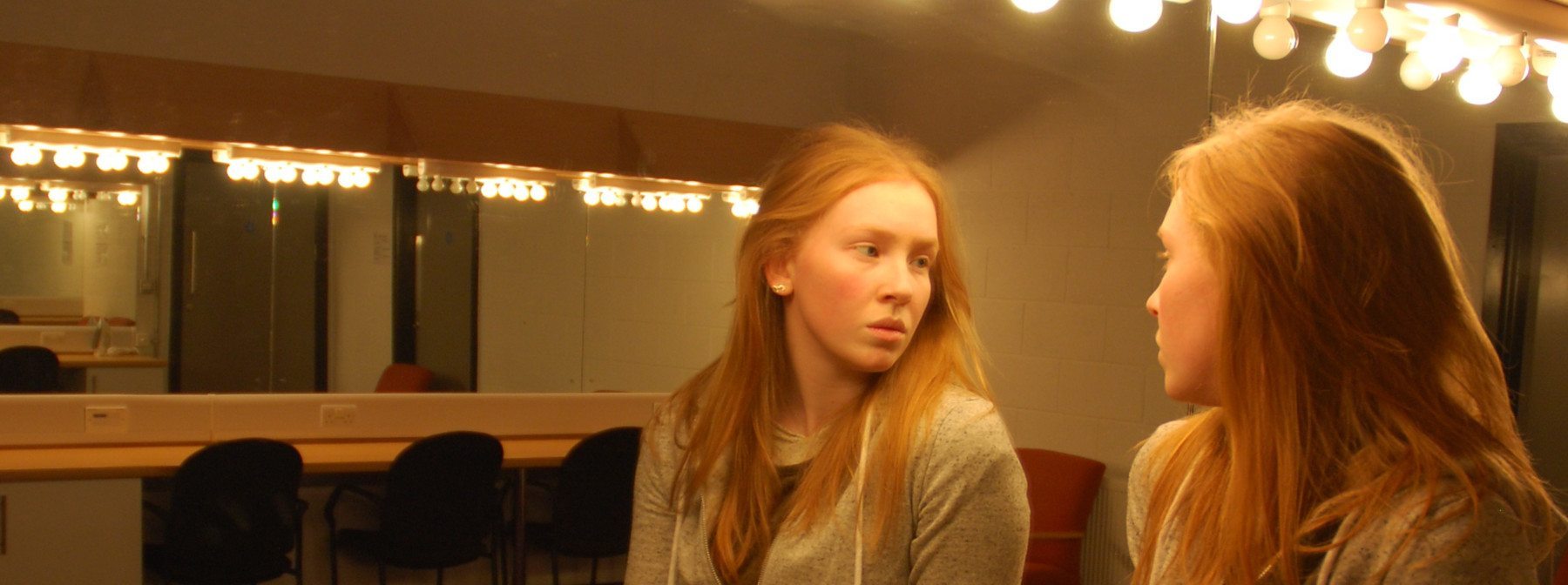Interview: WUDS’ Antigone
Warwick Arts Centre becomes an Ancient Greek amphitheatre this week, with WUDS bringing Director Anna Howard’s interpretation of Antigone to life. One of Sophocles’ most famous plays, it tells the story of a woman trying to gain the burial for her brother that have been refused but she believes he rightly deserves, all the while fighting against the King of Thebes, who happens to be her Uncle. As a drama that has fascinated and moved audiences for over 2,000 years, the task of making it relevant today presents a challenge. And yet, that is precisely what the talented cast and crew aim to do, using Jean Anouilh’s adaptation of the play rather than the original Sophoclean tragedy, making the story much easier to understand in the process, as well as giving the roles more easily comprehendible humanity and emotion. Before they go on show, Boar Arts was able to interview Kate Thorogood (Antigone), Bryony Davies (Creon) and Anna Howard.
Boar Arts: Considering the dark nature of the play and the harrowing events that take place, is it emotionally draining rehearsing for it?
Anna Howard: Absolutely, even just watching it as the director you can tell how much the actors are pouring into the stories and it’s very affecting to watch. Although it’s a tragedy, at times it’s hilarious, which can be a really interesting conflict. I try to hold back my reaction a bit though so that we still have everything to play for come show week.
Kate Thorogood: Sometimes, the most painful moments have taken time to come out of the woodwork and sometimes surprised us – sometimes a moment you thought you had pinned down becomes something completely different. Now it’s all together, it has become a collectively emotional experience – but in a creatively fulfilling way. We laugh together a lot in rehearsals, which I think is closely linked to creating a space where it is possible to do justice to the necessary emotional demands of the piece.
Bryony Davies: I think that the process of this play has been emotional for almost everyone. The first exercises we did in the initial rehearsals had us all cringing/shaking/sweating/laughing. This play has come at a time when I’ve personally needed the space to go to certain places emotionally and it’s just made the whole thing more real for me and for my character. It’s pretty liberating to have that chance, but I fear for us all in production week when we have to go for it every night!
BA: Antigone is often perceived as a woman who is wronged, a tragic character therefore. How did you portray this while still keeping the audience sympathetic and engaged in the play?
KT: Antigone for me is not an immediately likeable or understandable character who the audience would naturally sympathise with. Her unstoppable drive to do what she believes is right leads to a struggle which addresses huge questions about the most important things for humanity. There are elements of Antigone which the audience will see in themselves, and the same is also true of Creon. The audience will hopefully identify with both protagonists, which is what makes Anouilh’s interpretation such a gripping work. Antigone’s youth, which is integral to her philosophical intensity, was an important part of understanding the tragedy. Overall, I have tried to create an Antigone which the audience sympathises with for a reason, rather than simply because they feel they should.
BA: Have you made any directorial and casting decisions that change the original play? If so, why?
AH: We decided to cast a female Creon, as we were casting the role gender-blind, which has had really interesting results. It wasn’t a grand concept – just that she was simply the best person for the role, but it’s inevitably created an unusual interpretation. The classic Creon is a tall, large and imposing man, which makes it very easy for the audience to see the power dynamics. We have to work a bit harder for it, but the new elements that come out from having a female Creon make it absolutely worth it.
BA: How much has the original Greek Tragedy influenced you in the production of the play?
AH: The Jean Anouilh version was written in 1942, during the Nazi occupation of France, but a lot of the elements of Sophocles are still there – what’s really influenced us from Greek tragedy is the sense of justice and political resonance, which we’re trying to keep alive.
BA: How has the play been adapted, if at all, in terms of the setting of the play to make it more modern and relatable to student audiences who may be unfamiliar with Greek mythology?
AH: We’ve set it in modern Thebes, so the clothing and the language is all very familiar. But it’s also very clearly theatrical – the Chorus explains the story and the nature of tragedy, and we can see the actors sitting offstage, so we hope student audiences will be able to relate to it more by seeing it exposed.
BA: What role does the Chorus take on in this production, and how does the presence of such a character/entity affect an audience’s perception of the events of the play?
AH: Our Chorus is the stage manager – it made much more sense within modern theatre and it means she has the freedom to walk about the stage with authority.
BA: What’s it been like to put together the production in such a short amount of time, in terms of both production and performance? Have there been any particular difficulties?
AH: It’s been super busy but really rewarding, because we see really rapid change and new things emerging every day.
BD: I’ve become so comfortable with everyone and I feel we’re a tight ensemble now, which is amazing considering the quick turnaround!
WUDS present Antigone at Warwick Arts Centre Wednesday 29 January – Saturday 1 Feb. For more details see here.

Comments (2)